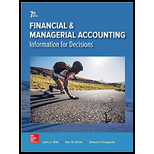
General Accounting Principle:
This contain the accounting principle generally used in every corporation. This is based on the economic condition of country and differ from one country to another.
Cost Concept: As per this concept actual value of the assets are recorded in the books of accounts. The accountant of the company should always understand the importance of this concept as when payment of asset to the seller occur then only record the transaction.
Business Entity Assumption: The business entity concept means that the business man should record the business transaction and personal transaction separately. Each form of business organization is a separate business entity. So, the accountant will record the personal and business transaction separately.
Revenue Recognition Principle: Revenue recognition principle provide the rules and regulation that should be follow while recognizing the revenue. In accrual basis of accounting the accountant record the transaction of sales when it occur not when the payment against sale is received.
Expense Recognition Principle: As per this accounting principle the expense occur to initiate sales must be recorded in the same accounting period. If the expenses occur not directly relates to the sales period than it should be expense incurred.
Going Concern Assumption: As per this concept the life of the company is not defined. As company is artificial person and the death of company is not possible. If auditor of the company says that the future of company is dark then only the question on existence of company arises.
To identify: The accounting principle or assumption best as per the situation.
Want to see the full answer?
Check out a sample textbook solution
Chapter 1 Solutions
GEN COMBO FINANCIAL AND MANAGERIAL ACCOUNTING; CONNECT ACCESS CARD
- Solvearrow_forwardA local bakery sells 12,000 loaves of sourdough bread each year. The loaves are ordered from an outside supplier, and it takes 4 days for each shipment of loaves to arrive. Ordering costs are estimated at $18 per order. Carrying costs are $6 per loaf per year. Assume that the bakery is open 300 days a year. What is the maximum inventory of loaves held in a given ordering cycle? Solutionarrow_forwardHello tutorarrow_forward
- A local bakery sells 12,000 loaves of sourdough bread each year. The loaves are ordered from an outside supplier, and it takes 4 days for each shipment of loaves to arrive. Ordering costs are estimated at $18 per order. Carrying costs are $6 per loaf per year. Assume that the bakery is open 300 days a year. What is the maximum inventory of loaves held in a given ordering cycle?arrow_forwardGiven solution for General accounting question not use aiarrow_forwardPlease provide correct solution and accounting questionarrow_forward
- Answer? ? Financial accounting questionarrow_forwardWhat is the maximum inventory of places held in a given ordering cyclearrow_forwardA local bakery sells 12,000 loaves of sourdough bread each year. The loaves are ordered from an outside supplier, and it takes 4 days for each shipment of loaves to arrive. Ordering costs are estimated at $18 per order. Carrying costs are $6 per loaf per year. Assume that the bakery is open 300 days a year. What is the maximum inventory of loaves held in a given ordering cycle? need your helparrow_forward
- What is the machine's book value at the end of 20X4?arrow_forwardAccounting solutionarrow_forwardA local bakery sells 12,000 loaves of sourdough bread each year. The loaves are ordered from an outside supplier, and it takes 4 days for each shipment of loaves to arrive. Ordering costs are estimated at $18 per order. Carrying costs are $6 per loaf per year. Assume that the bakery is open 300 days a year. What is the maximum inventory of loaves held in a given ordering cycle?arrow_forward

 AccountingAccountingISBN:9781337272094Author:WARREN, Carl S., Reeve, James M., Duchac, Jonathan E.Publisher:Cengage Learning,
AccountingAccountingISBN:9781337272094Author:WARREN, Carl S., Reeve, James M., Duchac, Jonathan E.Publisher:Cengage Learning, Accounting Information SystemsAccountingISBN:9781337619202Author:Hall, James A.Publisher:Cengage Learning,
Accounting Information SystemsAccountingISBN:9781337619202Author:Hall, James A.Publisher:Cengage Learning, Horngren's Cost Accounting: A Managerial Emphasis...AccountingISBN:9780134475585Author:Srikant M. Datar, Madhav V. RajanPublisher:PEARSON
Horngren's Cost Accounting: A Managerial Emphasis...AccountingISBN:9780134475585Author:Srikant M. Datar, Madhav V. RajanPublisher:PEARSON Intermediate AccountingAccountingISBN:9781259722660Author:J. David Spiceland, Mark W. Nelson, Wayne M ThomasPublisher:McGraw-Hill Education
Intermediate AccountingAccountingISBN:9781259722660Author:J. David Spiceland, Mark W. Nelson, Wayne M ThomasPublisher:McGraw-Hill Education Financial and Managerial AccountingAccountingISBN:9781259726705Author:John J Wild, Ken W. Shaw, Barbara Chiappetta Fundamental Accounting PrinciplesPublisher:McGraw-Hill Education
Financial and Managerial AccountingAccountingISBN:9781259726705Author:John J Wild, Ken W. Shaw, Barbara Chiappetta Fundamental Accounting PrinciplesPublisher:McGraw-Hill Education





